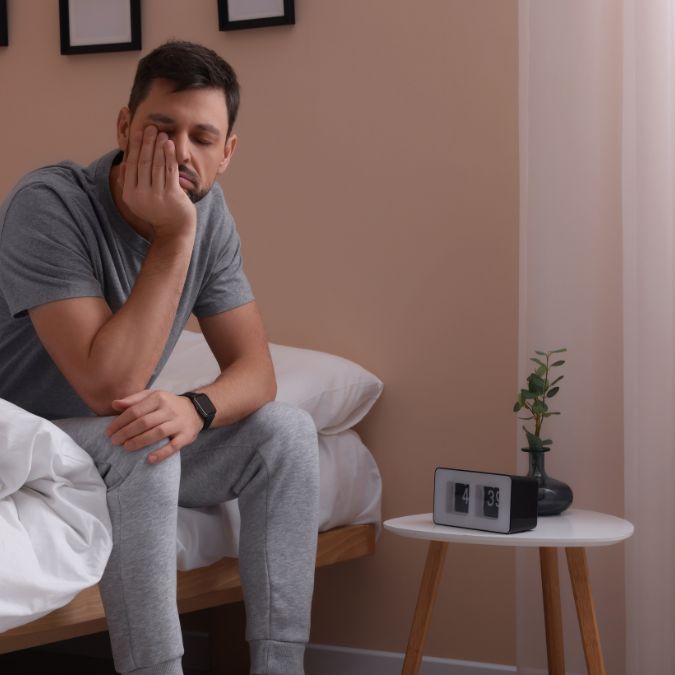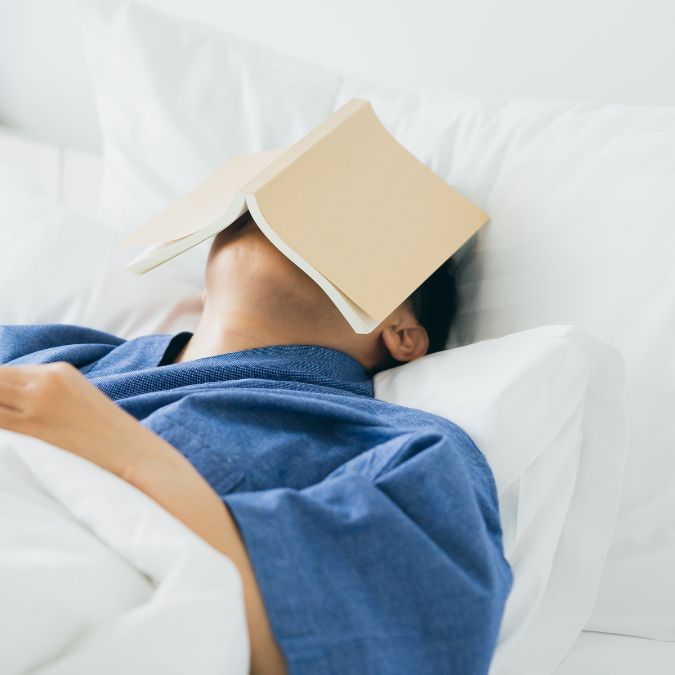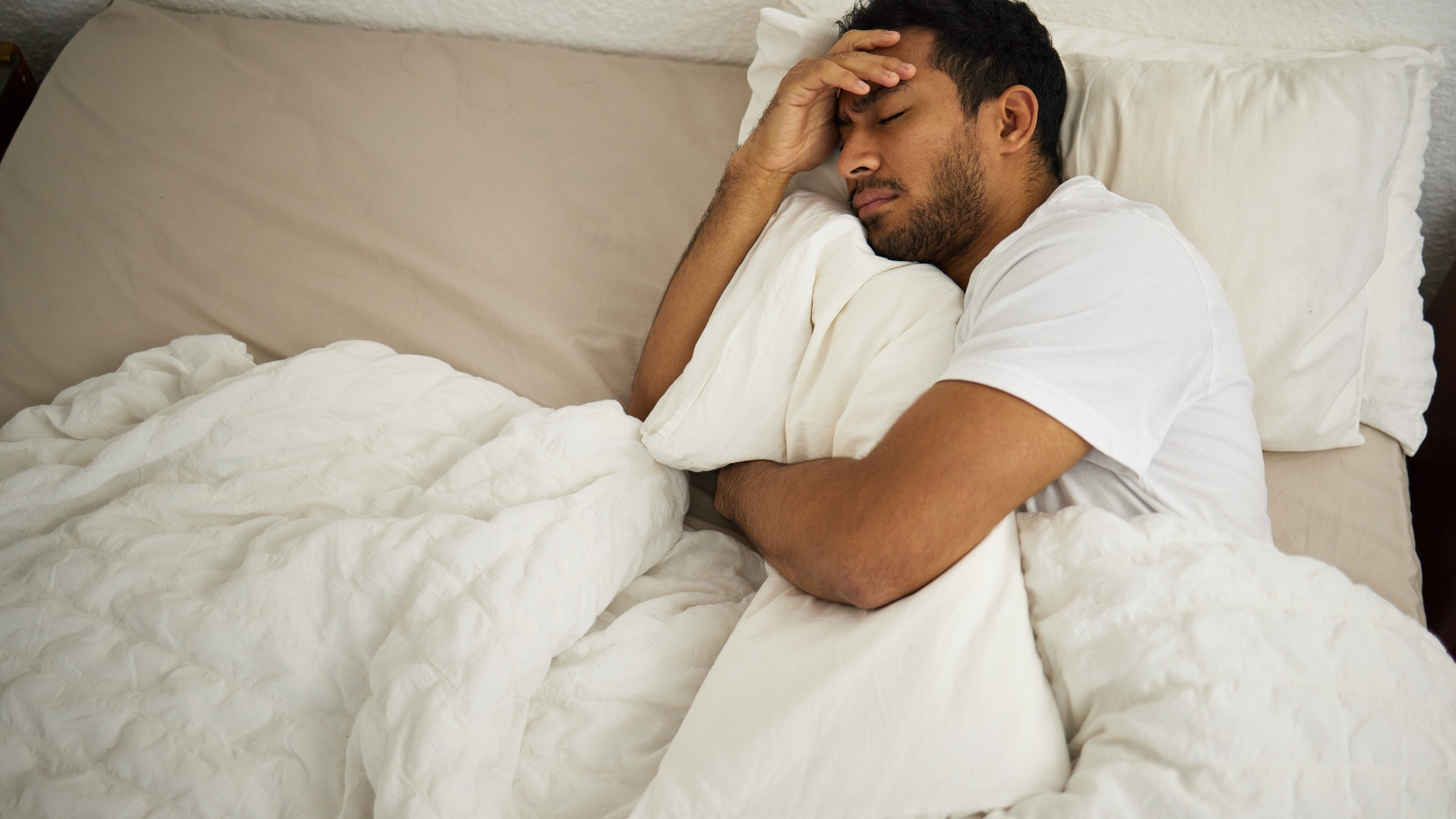Sleep is a fundamental aspect of our lives. It contributes to our overall health and wellbeing in about as profound a way as you can imagine. However, many of us struggle to get the kind of restful and rejuvenating sleep that we need.
This can be a great concern, especially with regard to our hormone health. Particularly – or at least for this article – this can have a profound impact on men’s health.
This is because sleep and the hormone testosterone output are closely tied to one another. Sleep is critical for healthy, optimal testosterone production. I’ve personally had this issue before – especially during periods of intense stress or high workload – where a lack of sleep has led to my testosterone output measurably dipping to almost unhealthily low levels.
Testosterone is responsible for a great many things, including muscle mass, bone density, sex drive, and mood regulation. Low testosterone levels can lead to several health problems and can severely impact your quality of life. Inadequate sleep or poor sleep quality can mean much diminished testosterone production, whereas good and sufficient sleep can enhance it.
In this article, I want to explore the relationship between sleep and testosterone and its implications for overall health and wellness.
The link between sleep and testosterone output

Sleep and testosterone levels are closely tied to one another.
Our testosterone production closely follows our circadian rhythms – the natural 24-hour rhythm by which I bodies run. Testosterone levels typically peak in the morning and are lower in the evening. This natural cycle is important for maintaining hormonal balance and overall health.
When we sleep, our testosterone production increases as part of this natural circadian rhythm. Getting enough high-quality sleep is therefore essential for supporting optimal testosterone levels.
However, too little sleep, and/or poor-quality sleep, can disrupt this balanced hormonal pattern. This in turn will naturally lead to diminished, sub-optimal testosterone output.
Research has shown that sleep deprivation or restricted sleep can significantly reduce testosterone levels in men. For example, one study found that men who experienced sleep deprivation had lower testosterone levels compared to those who managed to get a healthy amount of sleep.
As well as this, sleep disturbances like sleep apnoea or insomnia have been associated with decreased testosterone levels.
Again, I’ve been through this myself. I’ve had a couple of stretches of insomnia in my life, particularly when I was younger. I’ve also had periods of burning the candle at both ends – studying for a master’s degree, publishing my first book, writing for several magazines, becoming a father, moving house, all out once.
I began to feel dreadful and, recognising the warning signs, had my bloodwork tested for testosterone output.
It was down to 10 nmol/L. This is one point away from being clinically low, at which point medical intervention may well have become necessary. However, I’ve done plenty to change this, including ensuring that I get a full 7-9 hours of largely uninterrupted sleep per night.
My levels now hover around 30-32 nmol/L, which is just a couple of points shy of the healthy upper range. In short, I have managed to fully optimise my testosterone output with just a few lifestyle changes, with my sleep schedule being key to it all.
And I’ve also managed to put myself into something of a virtuous cycle. The connection between sleep and testosterone is bidirectional, meaning that testosterone levels can also impact sleep quality.
Low testosterone levels have been linked to sleep disturbances, including difficulties in falling asleep and disrupted sleep patterns. High levels have been linked to better-quality sleep, on the other hand.
This means that my good sleep quality and healthy testosterone levels are reinforcing one another, which is exactly where you want to be.
How to gear your sleep towards optimal testosterone output
With all this in mind, it is important to prioritise healthy sleep habits if you want to optimise your testosterone levels. This includes getting enough sleep, aiming for 7-9 hours a night for adults, practicing good sleep hygiene, and addressing any sleep disorders that may be affecting your sleep quality.
Let’s begin with quantity. 7-9 hours of sleep per night for adults is a good rule of thumb for anyone looking to support overall health and wellbeing – including, of course, healthy hormone regulation. This is what I began to put in place as I sought to optimise my testosterone output, and it has worked wonders.
However, quantity isn’t everything. Your quality of sleep is also incredibly important. Practicing good sleep hygiene, such as creating a relaxing sleep environment, avoiding stimulating activities before bed, and establishing a regular sleep schedule, can help to give you a much better quality of sleep and promote healthy testosterone levels. (See more on this below, where I will go into more detail.)
If you’re experiencing sleep disturbances – like finding it hard to fall or stay asleep – or if you have been diagnosed with a sleep disorder like sleep apnoea, you should speak with your healthcare provider. They will be able to take any relevant steps needed to get you on a good treatment plan.
Treating sleep disorders – such as with continuous positive airway pressure (CPAP) for sleep apnoea – can help you to sleep better, which in turn should lead to improved natural testosterone output.
By prioritising healthy sleep habits – including getting enough high-quality sleep, establishing good sleep hygiene practices, and addressing any sleep disorders that may be affecting sleep quality – you can support your testosterone production’s natural rhythm and help to promote improved overall hormonal balance.
How to practice good sleep hygiene

Practicing good sleep hygiene involves developing habits and behaviours that prioritise and promote healthy and restful sleep. These are some of the things I’ve put into place to ensure that I consistently get a good night’s sleep, which in turn has had that all important knock-on effect to my testosterone output.
Firstly, stick to a sleep schedule if at all possible. It will be essential for regulating your circadian rhythm and promoting healthy sleep habits. Those early starts all week followed with gloriously slumberous lie-ins on your day off is a recipe for sleep disaster.
To keep a consistent sleep-wake cycle, you should aim to wake up and go to bed at the same time every day. This consistency can help your body regulate hormone production, including testosterone, aligning with your natural circadian rhythm.
Of course, this isn’t always possible – life gets in the way, as childcare commitments, shift patterns and the like interfere with our schedules. However, try to stay consistent as much as possible.
It’s also very important to create a relaxing sleep environment. Having a cool, quiet, and comfortable bedroom can help you fall asleep faster and stay asleep longer.
To minimise unwanted noise and light, consider using blackout curtains, an eye mask, earplugs, or a white noise machine, effectively barricading against any unwanted stimulus so that your conscious brain can more fully shut off.
Unwinding before bed is a critical part of practicing good sleep hygiene. Engaging in calming activity, such as taking a warm bath, meditating, or reading a book, can help your mind and body relax before bedtime.
For instance, I always practice yoga an hour before bed, including meditation, and then I read a chapter or two in bed before falling asleep. Actually, I often wake up with my kindle lying on my face, it’s been that efficient at getting me to sleep!
Limiting daytime naps can support healthy nighttime sleep. While short naps can provide a quick energy boost and work wonders for your stress levels, long or late afternoon naps can interfere with your body’s natural sleep-wake cycle. Avoiding long naps in the afternoon can help to get you ready for a proper recuperative sleep at night, leaving you feeling tired and ready for bedtime.
Limiting caffeine and alcohol intake can improve the quality of your sleep. I’ve only partially managed this – I barely drink alcohol. Caffeine… well, that’s a work in progress, the final domino left to fall!
It’s important, though. Caffeine and alcohol can interfere with hormone production and sleep quality. Caffeine in particular can make it hard to unwind and fall asleep. Alcohol can disrupt your sleep cycle. Limiting your consumption or avoiding them entirely late in the day can help promote restful sleep and maintain hormonal balance.
Regular exercise can promote healthy sleep habits, too. I used to think that this was one of my strengths – I exercise a lot. However, it was actually working against me.

It turns out that timing is essential. Physical activity during the day can provide many benefits, including better sleep quality and duration.
However, exercising too close to bedtime can be stimulating, making it difficult to fall asleep. Though I practice gentle yoga close to bedtime, I’ve now stopped hitting the gym so late in the day, opting to train first thing or mid-afternoon.
You should always try to leave around three hours before going to bed to wind down, especially if you use any kind of caffeinated or energising pre-workout supplement.
In fact, it’s a good idea to avoid any stimulating activities before bed. Electronics, including televisions, computers, and smartphones, can stimulate the brain and interfere with the quality of sleep. You need relaxing activities to help you unwind and promote restful sleep.
By adopting healthy sleep hygiene habits like these, you can improve the quality and duration of your sleep, which can contribute to maintaining optimal testosterone levels.
In conclusion
All in all, optimising testosterone levels through lifestyle modifications can have a significant impact on overall health and wellbeing. Sleep is a big part of this. Of course, testosterone boosting supplements or foods can help – but sleep should not be overlooked.
There are plenty of others, and I have taken most of them on board – for instance, by incorporating regular exercise, maintaining a healthy weight, managing stress effectively, consuming a balanced diet, and minimising alcohol consumption, you can quite easily promote optimal testosterone production.
Sleep is a massive part of this lifestyle shift. Aim for 7-9 hours of regular, high-quality sleep as and when you can. Practice good sleep hygiene, stay consistent where possible, and try to relax. Your hormone balance will thank you – your testosterone output should leap, just like mine did.







